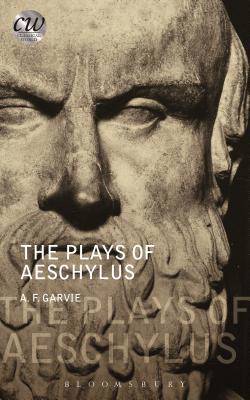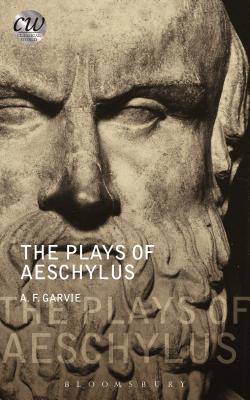
- Afhalen na 1 uur in een winkel met voorraad
- Gratis thuislevering in België vanaf € 30
- Ruim aanbod met 7 miljoen producten
- Afhalen na 1 uur in een winkel met voorraad
- Gratis thuislevering in België vanaf € 30
- Ruim aanbod met 7 miljoen producten
Zoeken
Omschrijving
This excellent introduction to the six extant plays of Aeschylus is fully revised and updated, with additional further reading, ideal for the student unfamiliar with these earliest of Greek tragedies. Aeschylus is the oldest of the three great Greek tragedians and lived from 525/524 to 465/455. He took part in the battle of Marathon in 490 and probably also in the battle of Salamis in 480, the subject of his Persians.
Working in chronological order of their first production, this volume explores Persians, the earliest Greek tragedy that has come down to us; Seven against Thebes; Suppliants; and the three plays of the Oresteia trilogy: Agamemnon, Libation Bearers and Eumenides. The book also contains an essay on Prometheus Bound, now generally thought not to be by Aeschylus, but accepted as his in antiquity. The volume is a companion to The Plays of Euripides (by James Morwood) and The Plays of Sophocles (by Alex Garvie) also available in second editions from Bloomsbury. A further essential guide to the themes and context of ancient Greek tragedy may be found in Laura Swift's new introductory volume, Greek Tragedy.Specificaties
Betrokkenen
- Auteur(s):
- Uitgeverij:
Inhoud
- Aantal bladzijden:
- 112
- Taal:
- Engels
- Reeks:
Eigenschappen
- Productcode (EAN):
- 9781474233279
- Verschijningsdatum:
- 6/10/2016
- Uitvoering:
- Paperback
- Formaat:
- Trade paperback (VS)
- Afmetingen:
- 137 mm x 213 mm
- Gewicht:
- 158 g

Alleen bij Standaard Boekhandel
+ 88 punten op je klantenkaart van Standaard Boekhandel
Beoordelingen
We publiceren alleen reviews die voldoen aan de voorwaarden voor reviews. Bekijk onze voorwaarden voor reviews.







